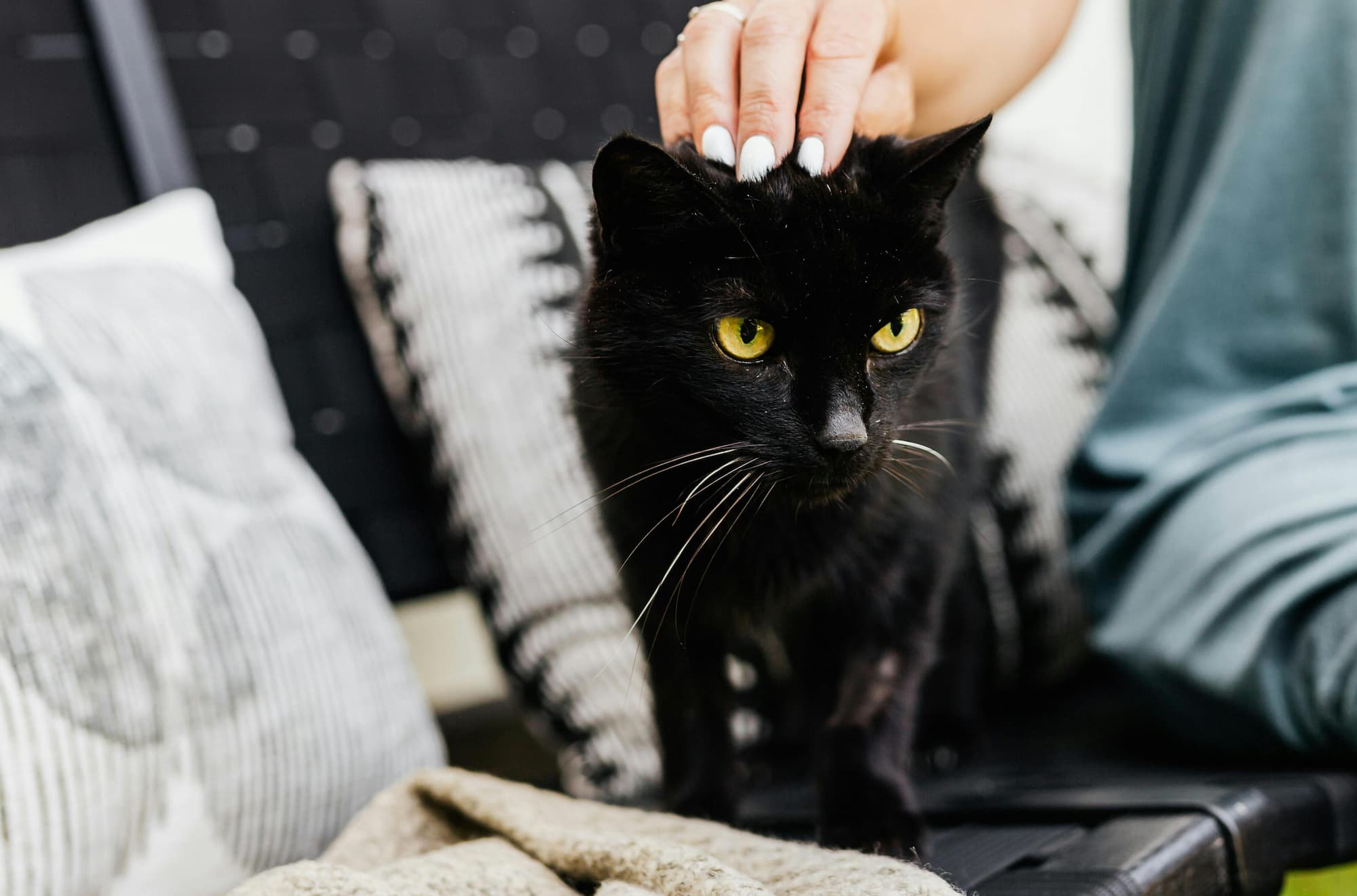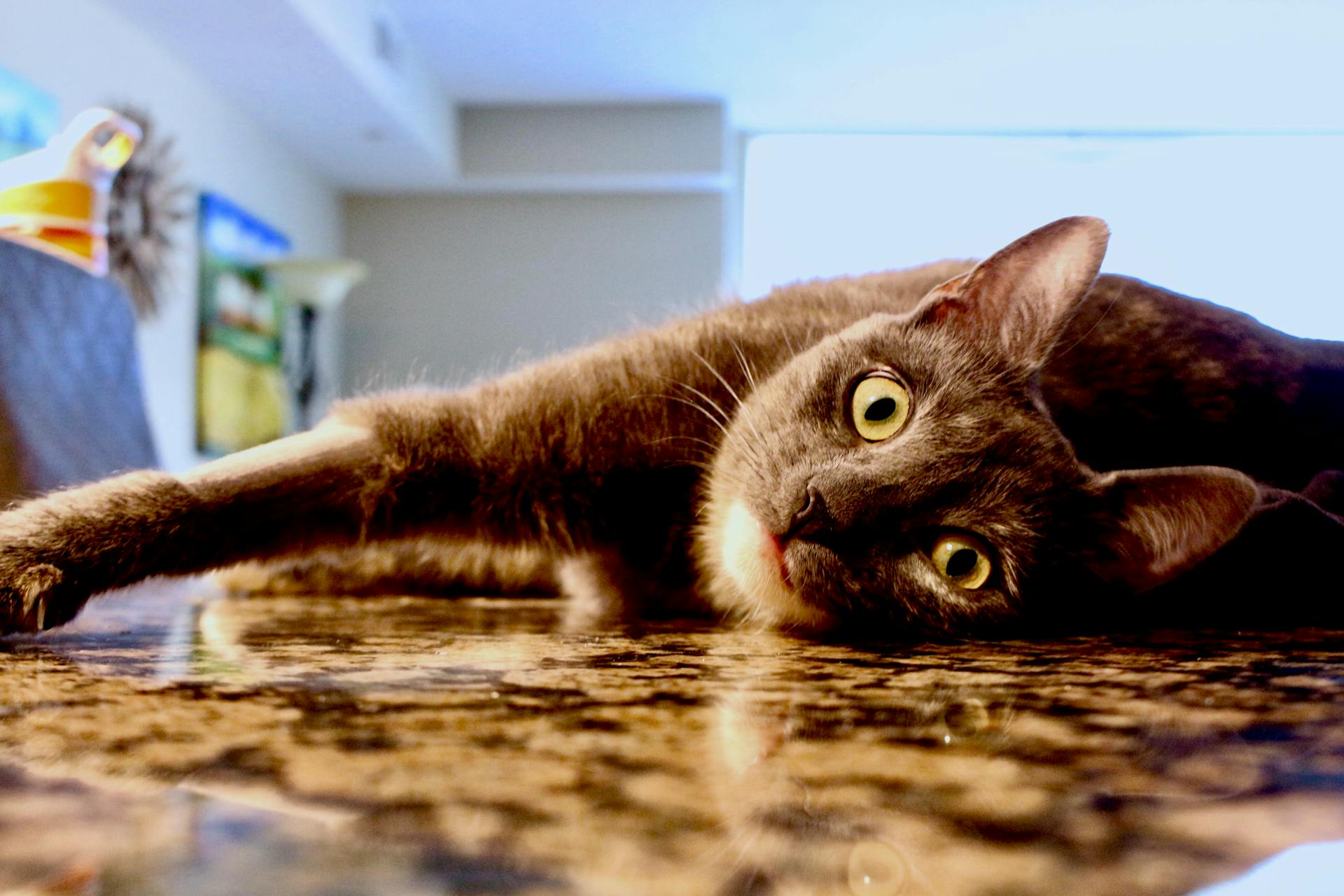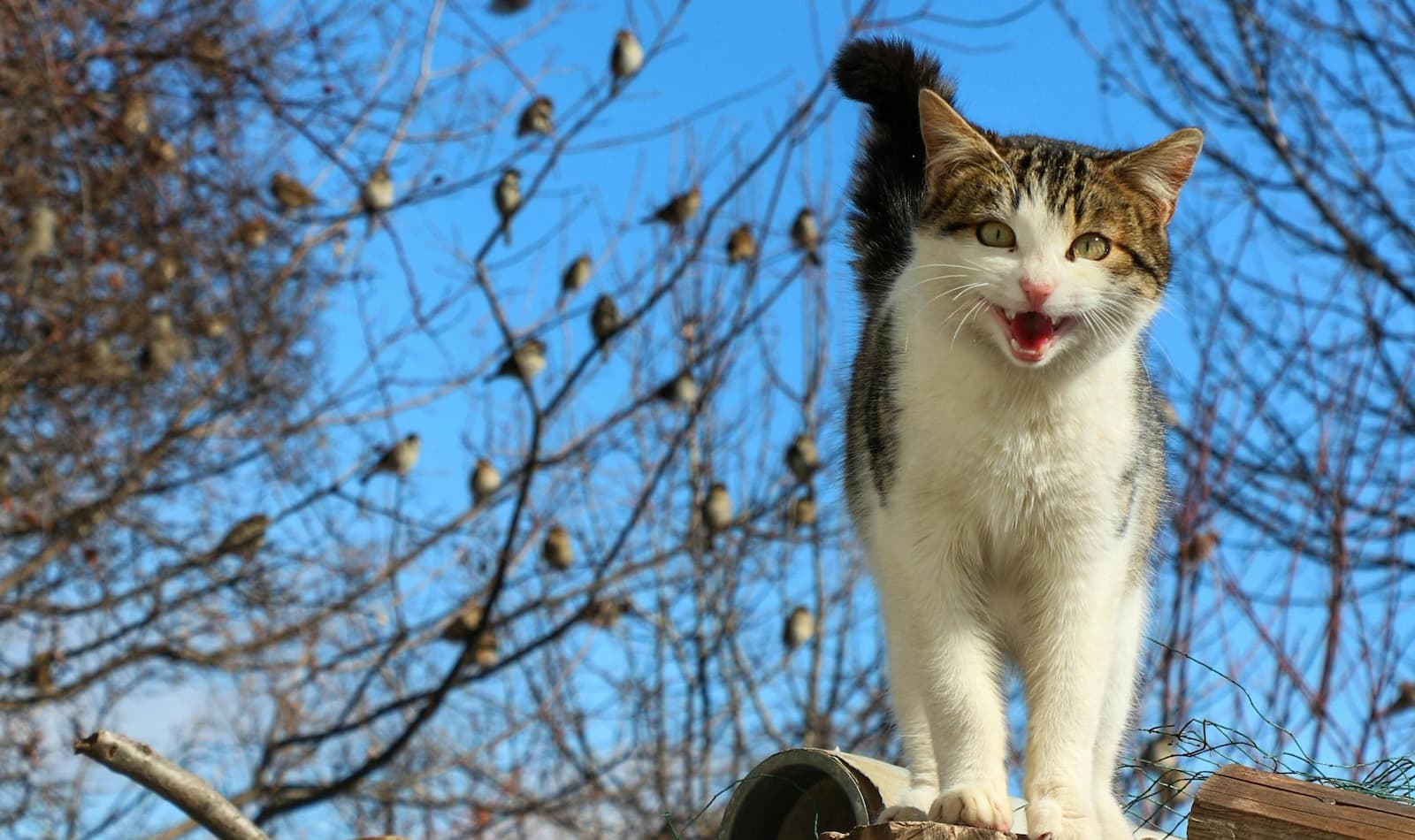What Does It Mean When a Cat Headbutts You?
Your cat frequently headbutts you, but do you know what it means? Head bunting is a quirky cat behavior that most domestic felines use positively and with love. Cats typically bop their heads against us out of affection, to mark their territory, rub their scent, seek attention, and bond socially with us. It usually means they trust you and feel happy. But what if your cat headbutts you and then bites you, bops your phone, or presses its head against a wall? Let’s look at some fascinating reasons why they might headbutt you and other objects.
The Top Reasons Your Cat Headbutts You
- Out of Affection
- To Seek Attention
- To Mark Their Territory
- To Be Social
- It Helps Cats Feel Less Anxious
Also in This Article:
- Frequently Asked Questions About Cat Headbutting Behavior
- The Difference Between Head Pressing and Bunting in Cats
Do Cats Headbutt to Show Affection?
We often misunderstand cats as being aloof and independent. But, in fact, they crave human interaction and love. When your cat headbutts you, they are expressing how happy and content they feel in your presence (1). It’s also a cute way of asking for your attention and affection in return. Perhaps they want you to pet, play with, or feed them.
Humans might say “Hi” or “How are you?” Cats initiate contact and communication by headbutting us.
Is a Cat Headbutt a Sign of Territorial Behavior?
Yes, but mostly in a loving way. Cats use headbutting to mark their territory and claim you as their own. They use their strong sense of smell to identify their friends and foes. By bumping their heads against you, they leave their scent, telling other cats a simple but true fact: you belong to them.
Sometimes, cats expose their throat, belly, or ears when they push their heads against us; this is a common sign of trust and confidence.

Source: Photo by Krista Mangulsone on Unsplash
Head Bunting and Social Behavior
Cat headbutting, or head bunting, is a social bonding behavior that kittens first learn to use with each other. When felines display this behavior, they activate the scent glands on their heads, just below the ear.
By rubbing their cheek against you, they transfer their smell to you, which, in their minds, means you’ll smell just as good as they do. This action is similar to what cats would do when living in a colony—they’d headbutt others so everyone shared the same scent.
How Headbutting Helps Cats Feel Less Anxious
Cats are sensitive creatures, aren’t they? They easily stress over changes in their surroundings, like strange people, new pets, or unfamiliar noises. By butting their head against you, a cat can create a safe space and a familiar scent that calms them down. You might consider it a gentle way to relieve stress and anxiety.
But did you also know that head bunting releases endorphins? Those are the hormones that make us happy and chilled out. Releasing additional endorphins is an excellent way to feel mentally and physically well. More endorphins equal fewer behavioral problems.
This idea is backed by a study on robotic head bunting, which showed a significant reduction in psychological tension for human participants (2). Although the study focused on humans, it suggests that the soothing effects of head bunting are actually universal!
How Headbutting Makes Your Bond Stronger
Wouldn’t you agree that sharing their scent and identity with you is a beautiful way to show trust and loyalty? It also suggests that your kitty is comfortable and relaxed and that they enjoy your company. Bopping their head or rubbing their teeth against your body sends the message that you’re a member of their family and that they adore you.

by Jia Mau (Sponsored Link)
How Headbutting Shows a Cat’s Personality and Emotions
Cats may display this behavior differently depending on their mood and temperament at a given moment. Headbutting can be an expressive way of showing exactly how they feel, and we can help by understanding.
Have you noticed that some kitties gently touch their heads to your face while others push up against your legs or arms? By observing how our cats like to interact, we can appreciate how their feelings unfold and understand how best to react.
Some may gently and softly touch you, while others approach with a forceful bump. Some cats do this occasionally, but I know others who repeat the behavior often, which concerns some pet owners.
Frequently Asked Questions About Cat Headbutting Behavior
Why Does My Cat Headbutt Me Then Bite Me?
Sometimes, a cat will headbutt us and follow the move with a bite because it feels overstimulated. While headbutting is mostly a sign of affection, some cats get overwhelmed by too much petting or attention. Then, they’ll react with a gentle nip as their way to let you know where their boundaries lie.
Why Does My Cat Headbutt My Phone?
Your phone, or other object you might have in your hand is (to your cat) an extension of you. Your kitty might bop her head against your phone because it has your scent on it, and it’s their way of marking that object with their own scent. Essentially, they are reinforcing that connection between them and you, their owner whom they love and trust.
Why Does My Cat Headbutt Me When I Pet Him?
Suppose you’re lovingly petting your cat and get interrupted by a headbutt. Because this behavior is primarily affectionate, you can take this signal as meaning they are enjoying the interaction and want more affection. It’s your kitty’s way of communicating, saying, “Keep going!”
Why Does My Cat Headbutt Me When I’m Sleeping?
Cats don’t always understand our need for 8-9 hours of sleep a night. For them, headbutting while sleeping is their way of reminding you that they are there and that they need something. To them, it’s playtime or feeding time, and it’s time for you to wake up.
Why Does My Cat Headbutt Me and Purr?
A combination of headbutting with purring is the ultimate sign of love and contentment. Your kitty is telling you they feel happy and safe in your presence. Above all, they want to share that feeling with you.
Why Does My Cat Headbutt My Hand?
Consider this: your hand is often the tool you use to pet and care for your cat. So they see this part of your body as the most direct way to show trust and love, by bopping it with an affectionate headbutt.
The Difference Between Head Pressing and Bunting in Cats
As pet owners, we shouldn’t mistake cat headbutts for a sign of anything more severe or concerning. While headbutting is a typical and healthy behavior for cats, there is another similar conduct that is not: head pressing. Head pressing, in comparison, is a red flag for potentially serious health issues (3).
When a cat presses its head against a wall, furniture, or other hard surface and stays in that position for a while, that’s head pressing. And we must be aware of it because it sometimes means severe medical problems. Repeated head pressing can be dangerous, potentially causing terrible damage to the brain and nervous system. So, we must treat that behavior as an emergency and get veterinary help.
Final Thoughts
Now you know the answer to the question “Why does my cat headbutt me?” A light “bop” shows affection and love, while some overstimulated cats may headbutt more forcefully to set some boundaries. Overall, head bunting is a charming way for our kitties to express themselves and feel closer to their human and animal friends.
Observe your cat closely and cherish this behavior. But please remember to watch out for the concerning behavior of head pressing—something you should bring to your vet’s attention if it happens. Mixing the two up could affect a cat’s health and well-being differently.
Sources:
- Turner D. C. (2021). The Mechanics of Social Interactions Between Cats and Their Owners. Frontiers in veterinary science, 8, 650143. https://doi.org/10.3389/fvets.2021.650143
- Yuga Adachi and Fumihide Tanaka. 2024. Development of a Robotic Device that Performs Head Bunting to Relieve User Tension. J. Hum.-Robot Interact. 14, 2, Article 20 (June 2025), 15 pages. https://doi.org/10.1145/3700600
- Head Pressing in Cats – PetMD – As veterinarian Dr. Jennifer Grota explains, a cat that is head pressing may seem stuck or confused as they push their head against something solid.




